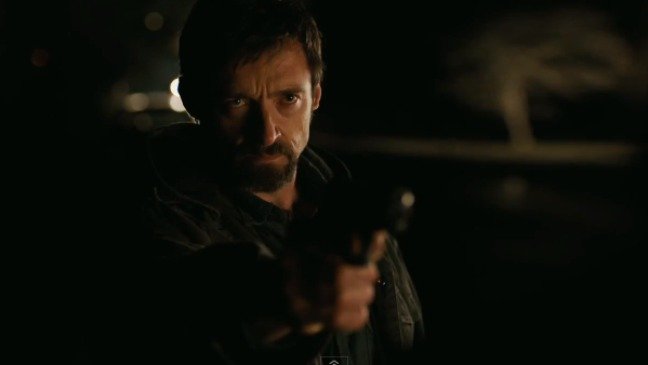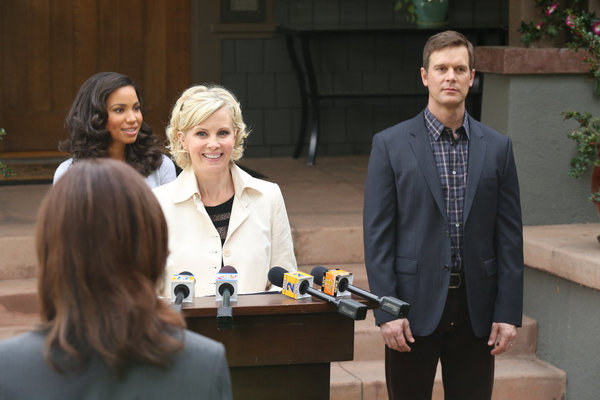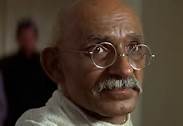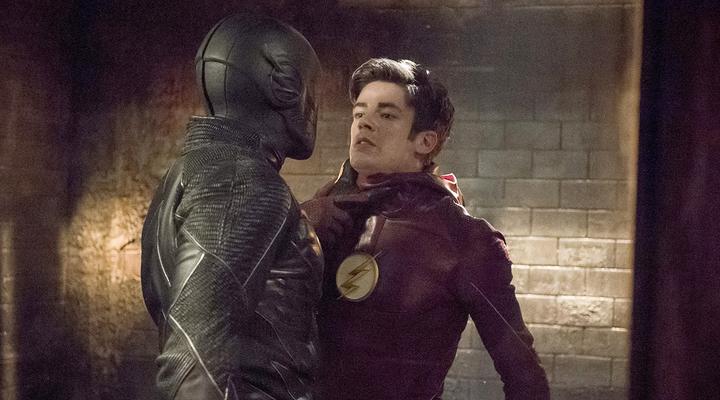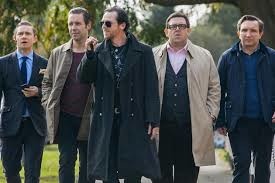Written by Aaron Guzikowski
Directed by Denis Villeneuve
USA, 2013
As fancy as it may feel, and as stacked as its ensemble is, Prisoners is pretty much a very well-acted and technically proficient feature-length episode of Law and Order: Special Victims Unit. To be as generous as possible, you might simply take out that NBC drama and insert the grimmest crime procedural on the air you can think of. Like the best cop dramas, Prisoners is compelling and twisty, red herrings planted with care throughout. And like the best cop dramas, Prisoners makes just enough sense in the moment of each of its scenes, showing the cracks of plausibility right as the next one begins. This film aspires to greatness, but isn’t ever able to shake the feeling of being nothing more than an adaptation of that novel you devoured on a recent cross-country flight.
Hugh Jackman plays Keller Dover, a gruff father of two whose Thanksgiving Day is rent asunder when his daughter Anna, and the daughter of his good friend (Terrence Howard) are abducted, gone without a trace. Jake Gyllenhaal’s Detective Loki—yes, Loki—is quickly on the case, the knowledge that he’s never left a case unsolved (though how many cases he’s investigated, we’ll never know) hovering over his head like the clouds perpetually drowning the small Pennsylvania town where Prisoners is set in gloominess. Keller becomes convinced that the culprit is Alex Jones (Paul Dano at his awkward, sweaty Paul Dano-iest), a local man who was driving a suspicious RV on the day of the abduction. Loki says Alex checks out, but Keller is unable to back off his unwavering belief and soon grabs Alex to find the two girls before any more harm comes to them.
Director Denis Villeneuve (making the jump to American cinema after directing films like Incdendies) never allows light into the proceedings, and very little elsewhere is forthcoming. Prisoners is, or wishes to be, important with a capital I. All the way from the black-and-white Warner Bros. Pictures logo to the intentionally simple and direct title cards, Prisoners wants very badly to be compared in the same breath to previous family-drama epics like Mystic River, in which a family man digs deep into a well of amorality to return his brood to their previous status. Like Sean Penn’s character in that film, Keller broadcasts his faith—interesting, though, that we never see him at church or allude to one—and like him, Keller is a man capable of shocking, bloody violence. Yet as much as Prisoners takes its sweet, sweet time arriving at a conclusion, even the main characters feel very underdeveloped, underwritten outside of a basic character trait. Keller is going to do whatever he can for his family, sounding as much like a cable-TV antihero as a dedicated family man. Loki is obsessed with solving the case. Keller’s friend Franklin is slightly wishy-washy, always leaning on being more pure of heart. And so on.
The best thing, in truth, about Prisoners is Roger Deakins’ cinematography, but then, of course it is. Whether he’s lensing a film from Joel and Ethan Coen or the latest James Bond movie, Deakins’ camerawork is always price-of-admission-level solid. It’s no different here; in shots such as a point-of-view look out a dark, drenched side mirror as faceless police officers approach, or when a chase begins after a character darts out of the dark and into a brightly lit backyard, Deakins’ work is a reminder of the beauty of the camera in modern cinema. In fact, the only shame is that Prisoners was shot in the 1.85:1 aspect ratio, not 2.35:1. The wider the canvas, the better. Alas, this will have to do until the next time he steps behind the camera, and make everyone wonder how the hell the Academy hasn’t honored Roger Deakins yet.
The movie he shoots, aside from the overlong and convoluted script, is perfectly fine, boosted by the ensemble. It is, however, a real shame that actors like Howard, Viola Davis, Maria Bello, and Dano have so little to do despite their characters’ presumed importance to the story. If there is one miscue here, it ties back to the late Roger Ebert’s good old Law of Economy of Characters, specifying that all characters are necessary to a story, especially the ones played by actors whose names you may recognize on the poster. It should come as little surprise, then, about which character and actor matter most in the final act. Of the performances, Gyllenhaal’s is best. He still maintains a slightly boyish air, but gone is the Boy Scout whose obsession for truth fueled the superior Zodiac. Silly name aside, the detective’s inability to let the case go is brought to life quite well through Gyllenhaal’s choices (even the actorly quirk of having Loki blink his eyes forcefully throughout).
Prisoners has a fiercely committed cast, especially Hugh Jackman. His barking fury may feel just a wee bit forced, but its aggressiveness is hard to ignore. If only the movie these people were so valiantly working on deserved their passion as much. The basic crumbs of this story would not be out of place on a procedural like Criminal Minds or, really, any of the shows in the Law and Order franchise. There’s nothing wrong with a good crime drama every now and then, and this one is exceptionally beautiful to watch. The difference is that Prisoners aims too high and is too self-serious. Law and Order knows it’s a TV version of fast food. Prisoners is fast food, too, but it thinks it’s a filet mignon.
— Josh Spiegel
